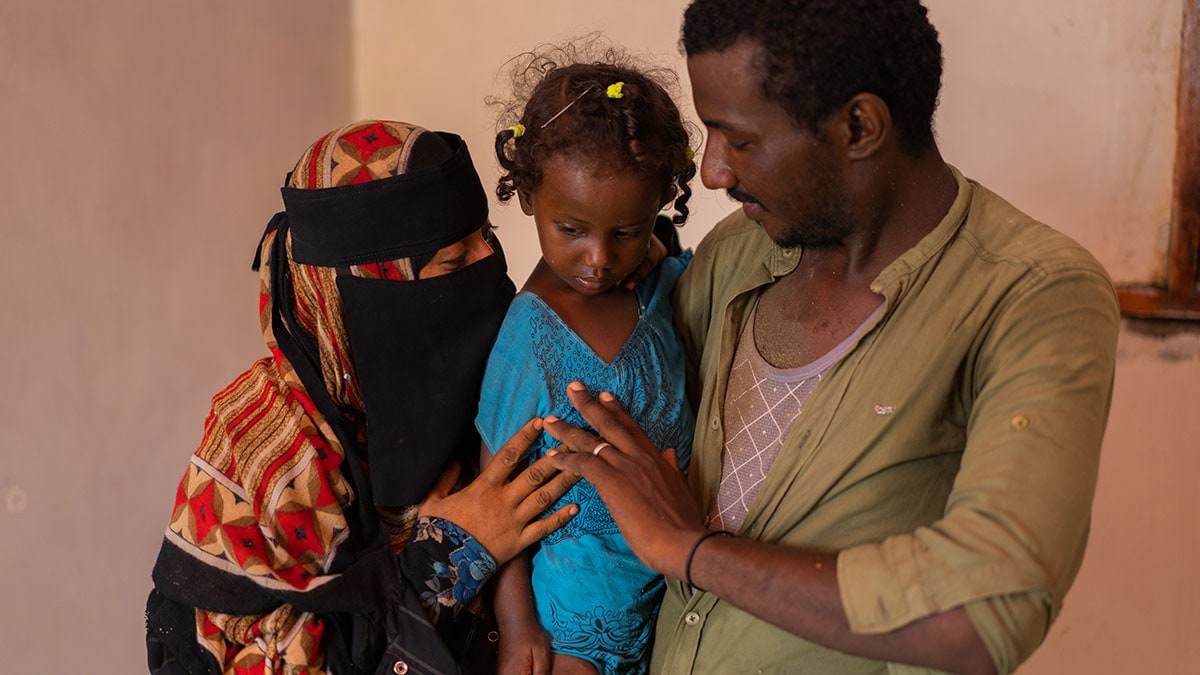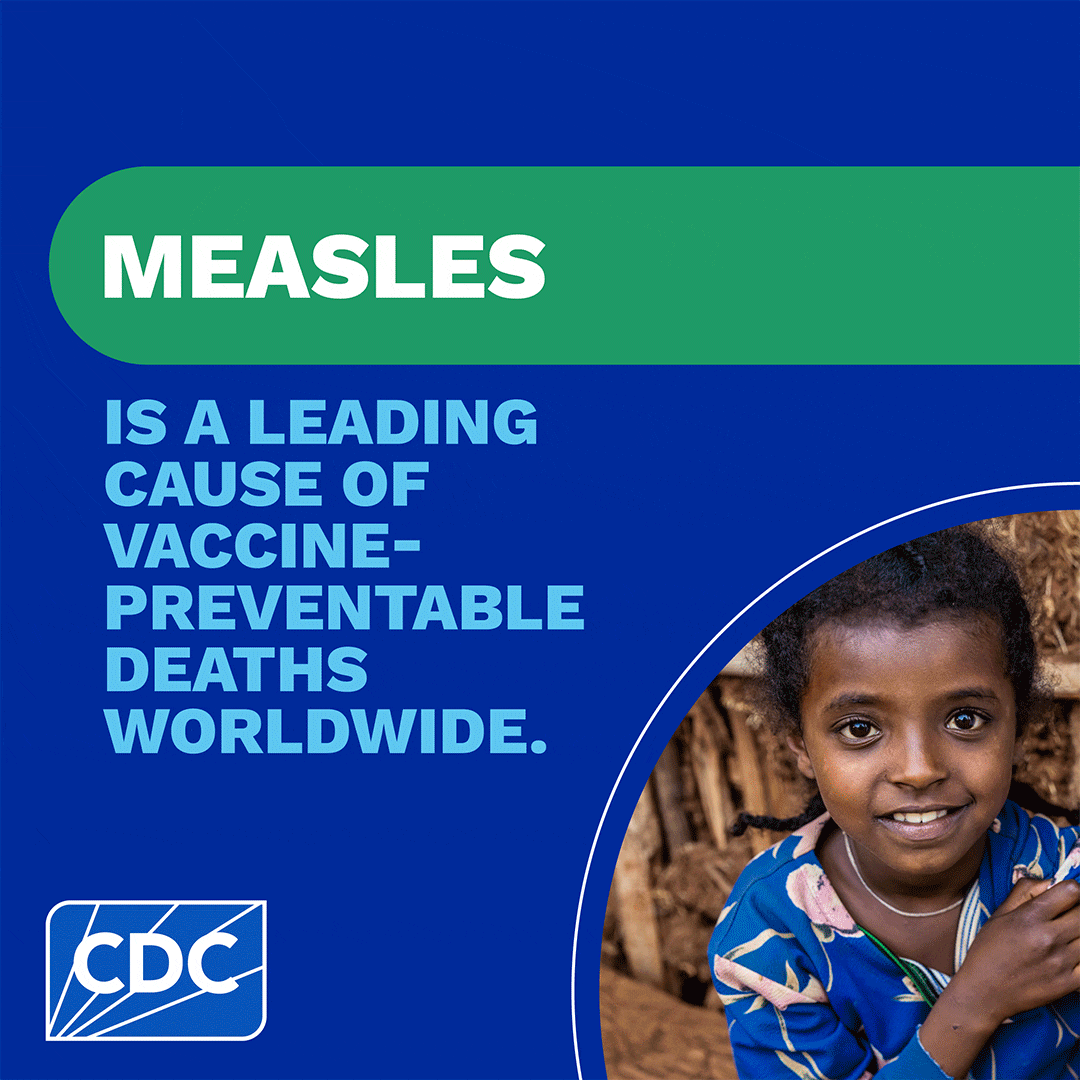At a glance
Measles can cause serious illness and death — particularly among children under 5 years old. Measles vaccines can prevent infections and outbreaks, which can cross borders to anywhere in the world.
Preventing disease and death

Measles can cause serious illness and death.
Children less than 5 years old are the most at risk for serious complications, including:
- diarrhea
- pneumonia
- encephalitis (brain swelling) and brain damage
- loss of hearing or sight
- death
Malnourished children are especially at risk of severe complications and death. Measles can also damage the immune system, leaving children who survive at higher risk of disease and death from other infectious diseases.
Maximizing health benefits
Measles vaccines are best buys for public health, offering the highest return on investment among all vaccines.
In many countries, measles and rubella vaccines are provided using a combined vaccine. It is one of the most cost-effective vaccines available: 2 doses of this vaccine costs less than $2 per child.
Since 2000, measles vaccines have saved an estimated 60 million lives.
Protecting people everywhere
Measles anywhere is a threat everywhere.
In 2023, an estimated 10.3 million people were infected with measles. Large outbreaks occurred in 57 countries across 5 regions.
In 2019, the United States had 25 outbreaks of measles related to unvaccinated people who became infected abroad and brought measles back to the United States. In countries where measles has been eliminated, cases and outbreaks can still occur when unvaccinated people travel to areas where measles occurs.
Ongoing challenge
In 2023, 22.2 million children globally missed the first dose of lifesaving measles vaccine. With so many children missing vaccines, the threat of measles has continued to grow.
It is critical that children everywhere get 2 doses of the lifesaving measles vaccine. CDC works with countries and global partners to improve vaccination coverage globally.

